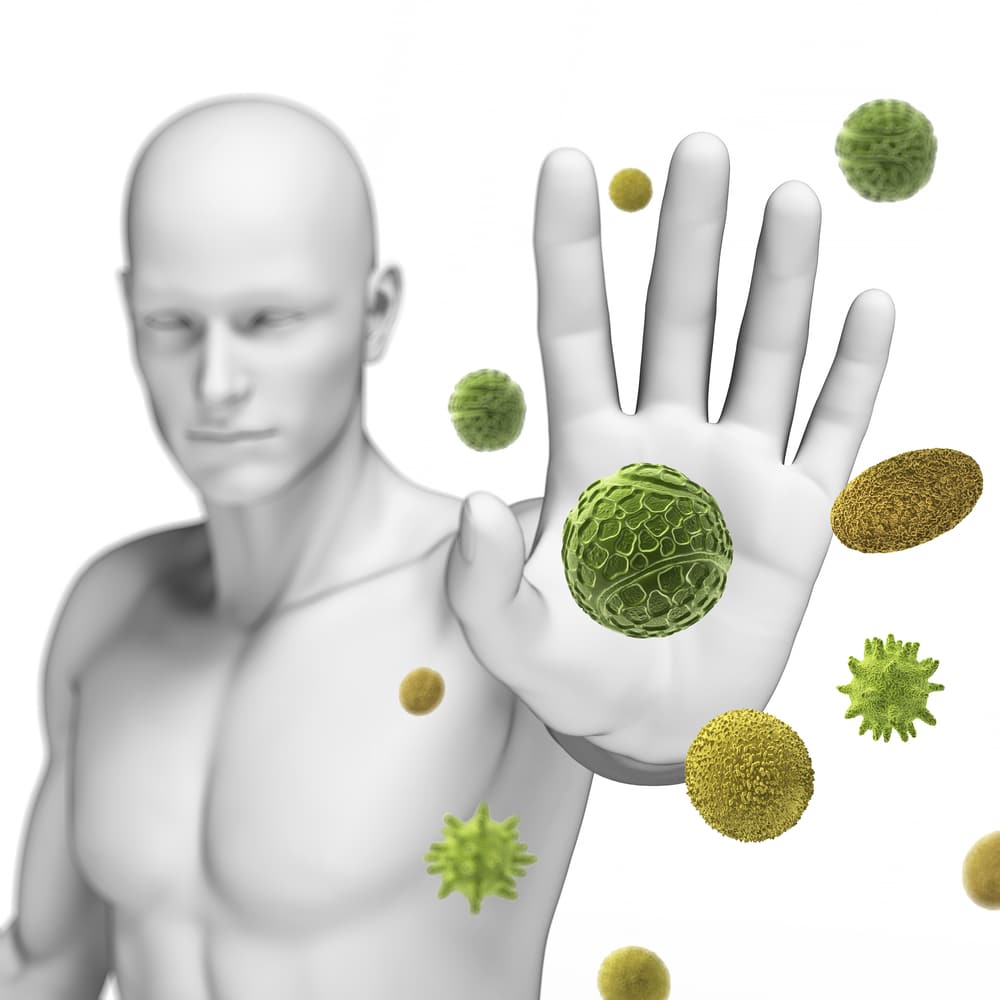
Five Ways to Ward Off Autoimmune Disease
One thing I know as a medical clinician is that biology isn’t destiny. One of my primal rules is: There’s no such thing as “I have bad genes, so bad luck for me.”
The truth is that while we all have biological vulnerabilities, less than 5% of us have a true genetic abnormality. For the rest of us, the way our genes play out frequently depends on our choices—good or bad.
Autoimmune diseases are one example. Not all of these are preventable, but in many cases, you can take steps to lower your risk—often dramatically. Here are my five best tips for keeping the odds in your favor.
1. Pamper your good gut bugs.
Your gut is home to trillions of microbes. If you have a healthy number of good microbes and keep the bad ones under control, your gut will be rock-solid.
However, if your gut gets out of balance—due to antibiotic use, a poor diet, stress, or other factors—two very bad things can happen:
· The bad microbes can multiply, churning out toxic chemicals.
· Small intestinal bacterial overgrowth (SIBO) can occur. In SIBO, microbes over-populate your gut, overwhelming it.
Bad bugs and SIBO have something in common: they cause inflammation that damages your gut wall, creating intestinal permeability—a “leaky gut.” A leaky gut, in turn, lets toxins and undigested food escape into your bloodstream. This onslaught of alien invaders from your gut sends your immune system into hyperdrive, causing autoimmune problems that can wreak havoc on any part of your body.
To protect yourself against developing a “leaky gut,” work every single day on keeping your intestinal wall healthy.
Here’s how:
· Add gelatin-rich foods like bone broth to your daily diet. Gelatin is one of the most powerful gut protectors on the planet.
· Eat fermented foods like kimchi and sauerkraut, which mainline good microbes to your gut.
· Eat high-fiber vegetables like kale, spinach, and asparagus. Fiber provides “mulch” that helps good bacteria grow.
· Take probiotics.
2. Cut out pro-inflammatory foods.
Sugar, grains, and unhealthy seed oils with bad ratios of omega-6 to omega-3 fatty acids all promote inflammation that can cause the “leaky gut” I talked about earlier. In addition, a diet high in carbohydrates overfeeds your gut bacteria, putting you at risk for SIBO.
So cut down on your carbs—and cut way down on the worst carbs, like sugar and white flour. Instead, eat lots of high-quality proteins, vegetables, and healthy fats like coconut oil. All of these foods are rich in inflammation-fighting nutrients that can help heal your gut.
3. Supplement your diet.
These days, it’s very hard to get all of the nutrients you need even if you eat a healthy, real-food diet. So in addition to the probiotics I mentioned earlier, I recommend these supplements—especially if you have a personal or family history of autoimmune problems:
-
EPA (an omega 3 fatty acid), 1200 mg twice per day. Omega-3 fatty acids are potent inflammation fighters.
-
Zinc, 20 mg per day. This supplement is crucial if you have a family history of autoimmune skin problems such as psoriasis.
- Vitamin D3, 5000 mg daily. Research shows that getting enough vitamin D can reduce your risk of developing some of the most serious autoimmune conditions—for instance, multiple sclerosis and rheumatoid arthritis.
Also, get a daily dose of another nutrient: sunshine. Many of my patients are absolutely terrified of the sun because they’re convinced that any exposure will give them skin cancer or wrinkles. The truth, however, is that a small daily dose of sunshine won’t damage your skin at all—and there’s increasing evidence that it can dramatically lower your risk of developing several autoimmune diseases including Crohn’s disease and multiple sclerosis.
What’s more, sunlight appears to benefit your body in ways that go beyond boosting your vitamin D—so a vitamin D supplement can’t entirely replace those rays.
The key, however, is not to overdo it. If you’re used to covering yourself in sunscreen, start exposing your skin gradually. Once you build up your tolerance, aim for at least 10 or 15 minutes of sun time every day if you’re fair-skinned. Shoot for 20 minutes if you have medium-toned skin, and half an hour if you have a deep skin tone.
4. Lower your stress.
Are you constantly battling stress, day in and day out? Then you’re at higher risk for an autoimmune disease.
Here’s why. The stress hormone cortisol plays a key role in regulating inflammation in your body. When you’re stressed all the time, you continually bathe your cells in cortisol—and eventually, they stop listening to it. This can lead to untamed inflammation that can trigger anything from psoriasis flares to arthritis.
The good news is that there are easy ways to lower your stress. Here are some of them:
· Practice mindful meditation. Research shows that this is a big stress-buster that actually changes your brain in ways that help you fight anxiety.
· Learn to breathe correctly. When you’re feeling stressed, breathe slowly and evenly, from your belly up.
· Take a break. Watch a movie, get a massage, or go on a walk.
· Exercise. Even a simple workout can help burn off extra cortisol.
5. Reduce your “body burden” of toxins.
Toxins damage your cells, making it harder for your immune system to recognize them as “self” rather than invaders. In addition, toxins cause inflammation, triggering an immune system response.
Of course, you can’t avoid toxins altogether. Instead, shoot for lowering your overall exposure. Switch to organic fruits and vegetables. Cut down on toxic cleansers and use natural ones, such as vinegar. Minimize your use of toxic yard products like herbicides, or avoid them altogether. Also, check out the safety of your skin care products using the Environmental Working Group’s Skin Deep® app.
The Bottom Line: “Proactive” can pay off
Remember: Most autoimmune diseases aren’t just about your genes. Instead, they’re about how your genes interact with your environment. When you make that environment as healthy as possible, you’ll have a far better shot at getting through your entire life with a happy, healthy immune system that protects your cells rather than attacking them. So take charge, and write your own destiny!
Keep Thinking Big & Living Bold!







